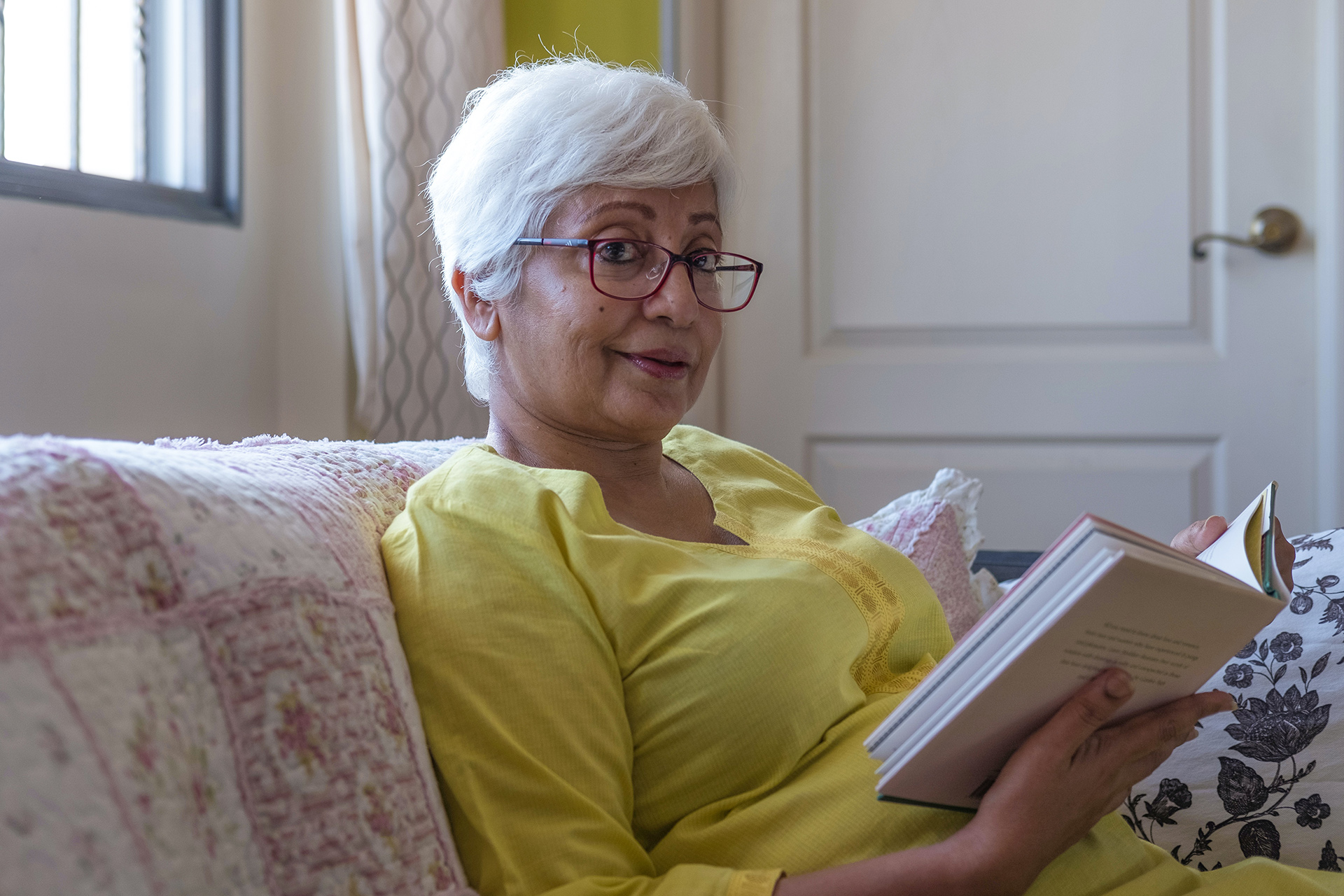If you’ve decided to move elderly parents into your home, you might be overwhelmed by the process ahead. The decision itself is often emotional and complex, and the moving process is its unique challenge. If you’re stressed about the process ahead, we’re here to help.
Do your best to set expectations about the process before it begins. Moving parents into your space isn’t an overnight endeavor. Have conversations with your parents (and anyone else in your household!) about what needs to be done to ensure everyone’s comfort.
At Life Storage, we know a lot about stressful life transitions. Below, we’ll walk you through the process of preparing for elderly parents to move in. First up: preparing your mind for the stress you may encounter along the way.
How to Mentally Prepare for Caretaking

1. Revisit your decision when stressed.
When things get hard and stressful (and they will), remember why you chose to have your parents live with you. Moving elderly parents into your home can be an ideal option for families who want to ensure their parent has their needs met. Everyone has their own rationale behind the decision, so identify yours and return to it often.
Reminding yourself of your “why” can help put things in perspective when emotions take over. If something happens during the move that triggers sadness, anger, or frustration, take a few deep breaths. Then, bring your “why” to mind as a way to recenter your emotions.
If you’re not quite sure of your “why,” here are some explanations that may resonate with you:
- Using your home allows the family to save money when compared to a long-term care facility.
- It’s a wonderful opportunity to spend more time with your loved one(s).
- Your parents are capable of helping with childcare and can help your home run more smoothly.
- Caretaking for your parents gives you a sense of pride and peace since you know they are receiving the best possible care.
Sometimes plans change (and that’s okay), which leads to our second suggestion.
2. Be honest about how much caretaking your parents need.
Even if an adult care facility is out of the question, it’s still important to honestly assess your parent’s care needs. If you can’t accurately determine what your parents need, contact a doctor or care facility to get a clearer understanding.
Once you know what they need, you need to be honest with yourself. Can you meet all of these needs without sacrificing your own wellbeing? It’s common to assume you’ll figure out how to manage the burden later, but that approach will likely end in burnout and frustration.
Caretaking can be too much for even the most loving and compassionate children. Despite your best intentions, it’s important to understand your real-world limitations. Also, remember that caretaking needs are fluid and subject to change. If you’re initially up to the challenge, have plans to accommodate potential future needs as they evolve.
Consider the following advice:
- Mentally prepare yourself for the prospect that your parents may eventually need a nursing home or assisted living facility if their needs supersede what you’re able to provide. Being prepared for this scenario will allow you to assess a situation’s reality even if seeing your parents deteriorate is emotionally straining.
- Be prepared to adjust caretaking plans as needed. If you get a new job or another situation changes at home, figure out how this change will impact your parents. Will you need additional family support? Will you need more financial support?
- Anticipate the cost of a health care aide if you’ll need assistance providing day-to-day care (bathing, feeding, dressing, etc.). The average cost of an aide is around $21 an hour, which can amount to $20,000 a year or more.
- Explore cost-saving options to lessen the burden. Tax deductions can help with the financial obligations of taking care of a parent. Children may be able to claim their parents as dependents and receive a tax deduction. If cost is an important factor in your decision, speak to professionals who may be able to help you save money.
How to Prepare Your Home for Aging Parents

Once you’re mentally prepared to move elderly parents into your home, it’s time to start preparing your space. Accommodating an extra person long-term will likely require some adaptations.
Here’s our checklist for moving elderly parents into your space:
1. Elder-proof the home for safety.
It’s common to baby-proof a house before a baby is born. The same concept applies here. Elder-proofing your home is the safest way to ensure your parent can move around your space without hurting themselves or others.
Use this checklist to elder-proof your home:
- Ground floor: Try to place your parents on the same level as the kitchen so they can navigate the home without using stairs. If your home’s layout requires the use of stairs, consider adding a stairlift.
- Bathroom: Add grab bars in the bathroom and consider installing a walk-in shower to prevent slips and falls.
- Stabilizing décor: Add anti-slip mats underneath your rugs, put bumpers on sharp furniture corners, and get rid of unsteady chairs.
- Clear the floor: Add bins for toys and declutter your living space so the floor is clear of tripping hazards.
- Lighting: Make sure rooms, hallways, and walkways are well lit. If your parents will be coming in and out of the home, make sure your exterior walkways are also well-lit.
- Wheelchair modifications: If your parent uses a wheelchair, make sure doors and hallways are wide enough for a wheelchair to pass (between 32 to 36 inches) and incorporate ramps where needed.
- Safety sensors: Consider placing sensors on windows and doors to alert you if your parent leaves home. This addition is especially helpful for parents with dementia or other memory challenges.
2. Prioritize everyone’s privacy.
Moving a parent into your home means you’ll share common areas unless you have an in-law suite. Regardless of the home’s size, it’s important to make sure that you and your parents each have a place of your own. Don’t be afraid to set house rules for elderly parents to help everyone feel respected and appreciated.
As much as possible, aim to give your parent any autonomy they can manage. Even if they need care, the more independence they can maintain, the longer they will be able to thrive. If you take over all responsibilities immediately, your parents’ mental and physical health may deteriorate more quickly, and you’ll be more likely to burn out.
Here are some ways to foster independence for parents in a small space:
- Kitchen: Give your parents their own cabinet in the kitchen for storage. If possible, give them their own shelf in the fridge.
- Laundry: Get laundry baskets and towels for your parents in a different color, so they don’t get mixed up with yours. Encourage your parents to do their own laundry if they are able.
- TVs: Ensure there is a separate television so your parents can watch what they want to watch any time of day or night.
- Seating areas: If there’s room, create a seating space in your parent’s bedroom. It might also help to create a seating area in your own bedroom to give you another leisure space that feels private.
- Pets: If your parent has a pet, encourage them to continue the pet’s care to give them a companion and some additional responsibility. If they can no longer care for the pet, make sure someone else in the family can take over those responsibilities.
- Communication: Consider using cell phones, baby monitors, or even walkie-talkies for on-demand communication that still offers some privacy.
- Renovations: Add square footage to your home if it makes financial sense. Making the necessary renovations to your home can be costly, but you still might save in the long run compared to a care facility—and you’ll add value to your home!
When moving elderly parents into your home, honesty and preparation are key. Give yourself and your family ample time to prepare your home, move excess items to an affordable storage unit, and make financial plans. We hope you can develop a plan that works for both you and your parents. Good luck!
Editor’s Note: Originally published on January 19th, 2021, and was revised on July 19th, 2023 with more information.
